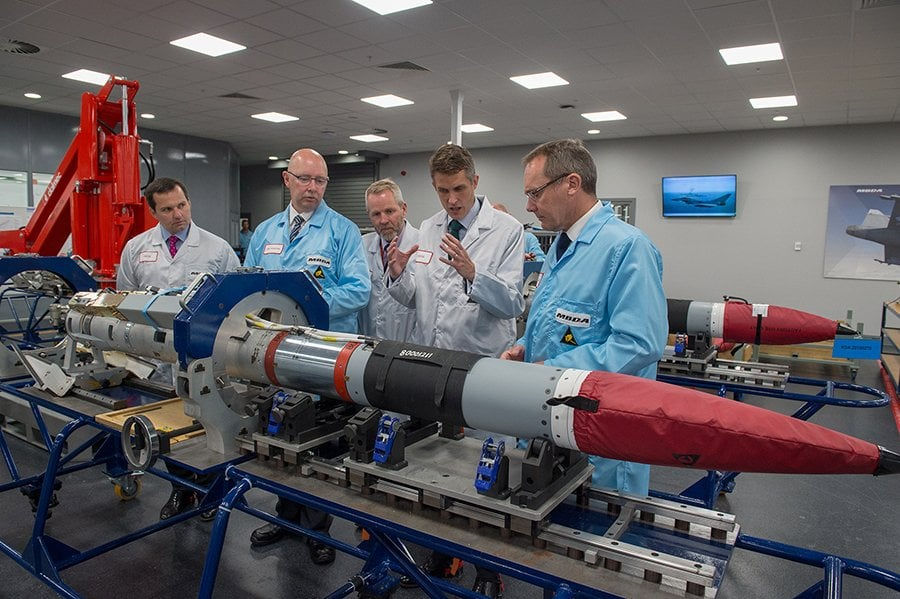£350M Missile Deal? Here’s What That Means for UK Export Contractors
- Vision TDM

- Oct 10
- 3 min read
The UK has secured a £350 million defense contract to supply lightweight multirole missiles to India, a deal that’s already being hailed as a win for manufacturing in Northern Ireland and a boost to Britain’s defense export pipeline.
But here’s the thing: this is far more than a single transaction. It’s a signpost of how global procurement is evolving and why UK contractors, exporters, and SMEs need to start thinking far more strategically about how they engage with public and defense sector opportunities.
Defense Procurement: The New Face of Strategic Diplomacy
Traditionally, defense contracts have been viewed through a narrow operational lens: who wins the bid, what’s being delivered, and at what cost. That’s no longer the full picture.
This deal exemplifies how procurement has become a foreign policy instrument. When a major defense contract lands, three things happen simultaneously:
Trade relationships deepen — A £350M contract isn’t just about weapons; it cements long-term strategic ties between governments.
Supply chains ripple outwards — The headline may feature one prime contractor, but dozens of secondary and tertiary suppliers will benefit.
Industrial capacity grows at home — Every major export deal translates to local jobs, manufacturing investment, and new innovation funding.
For UK export contractors, that’s the real opportunity. You don’t need to build missiles to benefit from a missile deal.

Why This Matters for UK Export Contractors
1. Tier 2 and Tier 3 suppliers can ride the wave
Whenever a Tier 1 defense contractor wins an international deal, the demand for parts, engineering, logistics, systems support, and specialist services surges down the supply chain. This is where well-positioned SMEs can secure lucrative contracts without needing to be at the negotiating table in Delhi or Westminster.
2. Regional growth = regional opportunities
Northern Ireland’s role in this deal underscores a growing trend: the UK government’s emphasis on regional manufacturing clusters. This is mirrored by the recent Local Innovation Partnerships Fund (£20M) aimed at backing regional capabilities. Businesses that anchor themselves near these growth nodes are better placed to win bids and become indispensable supply partners.
3. Policy is aligning with procurement
With the Procurement Act 2023 now in play, and new reforms designed to “grow British industry, jobs and skills,” the policy environment is actively working in favour of domestic suppliers. That means more visibility, more competitive advantage for UK-based firms, and clearer pipelines.
Strategic Playbook: How to Position Yourself Now
This isn’t the moment to sit back and watch the news scroll by. Smart firms are already using deals like this as early indicators of where public sector and defense sector cash will flow next.
Here’s a tactical roadmap for contractors and SMEs:
Monitor defense tenders in Northern Ireland. Keep an eye on subcontracting opportunities flowing from major export wins. These don’t always make national headlines but they can quietly shape your order book for years.
Leverage regional innovation funds. These funds are designed to build capacity around key industries. If your firm can align its services or capabilities with these clusters, your bid competitiveness increases exponentially.
Build local authority bid credibility. Don’t underestimate the power of smaller contracts. Winning £50K–£250K local authority work builds a track record that primes you for larger, more complex defense and export projects.
Integrate policy into your bid strategy. With procurement reform underway, firms that understand the policy narrative (not just the bid spec) will craft stronger, more compelling proposals.
The Big Picture
The UK’s £350M missile deal with India isn’t just a defense headline, it’s a strategic marker in the evolution of procurement. It signals how public sector contracts are being used to build geopolitical alliances, grow domestic industry, and strengthen regional supply chains.
For contractors, exporters, and ambitious SMEs, this isn’t just good news, it’s a flashing beacon: “Opportunity ahead.”
If you’re not already integrating defense and export pipeline intelligence into your bid strategy, now is the time to start.
The Big Picture
Procurement is no longer just a transactional process. It’s a strategic growth engine, and those who understand how to plug into it, at any tier of the supply chain will be the ones winning tomorrow’s contracts.




Comments